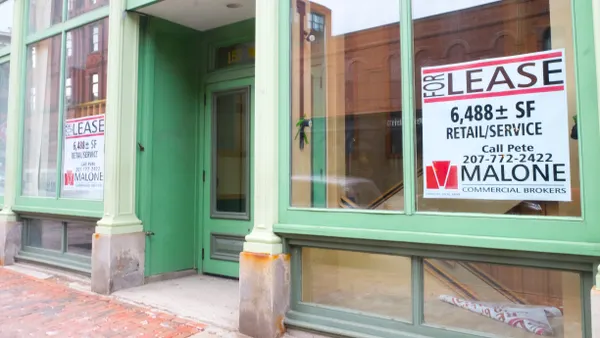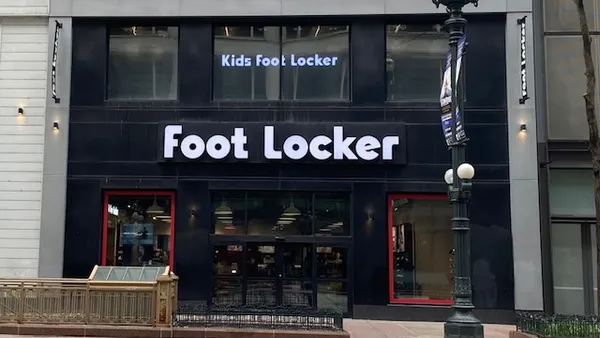Dive Brief:
- Party City on Saturday filed for Chapter 11 bankruptcy protection in the Southern District of Texas.
- The party supplies specialist also announced it will close its entire footprint, which at the time of its bankruptcy filing consisted of nearly 700 stores, according to court documents. The company has hired Gordon Brothers to assist in the liquidation process.
- This marks Party City’s second trip through bankruptcy court in less than two years after filing for Chapter 11 in January 2023.
Dive Insight:
Party City, once a leader in the celebrations space, is going out of business.
The company in October 2023 emerged from bankruptcy, shedding nearly $1 billion in debt.
Then-CEO Brad Weston commented on the “bright future that lies ahead for PCHI.” After exiting bankruptcy, the company took efforts aimed at creating a more efficient and profitable business, including optimizing its inventory, initiating layoffs, updating its retail pricing methodology and exiting its manufacturing business to instead focus on retail and wholesale.
In the 14 months since emerging from bankruptcy, however, Party City was faced with industry-wide challenges, including inflation, a pullback in discretionary spending, shifting consumer preferences and contracting margins, Deborah Rieger-Paganis, Party City chief restructuring officer and AlixPartners managing director, said in court documents Sunday.
Party City has faced competition as specialty pop-up stores like Spirit Halloween have expanded and mass merchants like Target and Amazon have increased their party offerings, according to GlobalData Managing Director Neil Saunders.
“While Party City previously pulled itself out of bankruptcy the first time around, its continued failure was likely inevitable,” he said by email. “A downswing in demand for party products has continued to put pressure on the business. Much of this is down to two factors: increased competition and a more constrained consumer.”
Despite efforts taken by the company to reposition it for long-term growth, sales and store traffic took a significant hit in the last year. Between July 2023 and July 2024, Party City’s comparative store sales fell 9.5%, while sales in its consumer products division declined 24.8%. As of Saturday, the company had about $400 million in debt obligations.
The company in September this year sought out ways to raise additional capital, but those efforts came up short, forcing the company to pivot to liquidation.
“Like many retailers, we’ve been operating in an immensely challenging environment with inflationary pressures on both costs and consumer spending, and while we did everything we could to navigate these headwinds, our very best efforts were ultimately not enough to overcome these challenges,” Party City wrote in a statement on its website.
Rieger-Paganis called the timing of the going-out-of-business sales “unfortunate” ahead of the holidays, but “essential” in order “to capture the benefit for all stakeholders of the Christmas and New Year’s selling seasons.” The company also said that it’s keeping on more than 95% of its 12,000 employees for an unspecified amount of time to help with the wind-down process.















